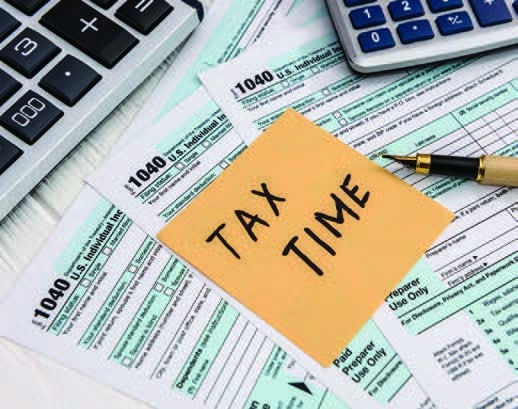
Don’t forget about your 2019 tax return
Earlier this year, in response to the novel coronavirus (COVID-19) crisis, the IRS postponed numerous federal tax filing and payment deadlines. If you took advantage of the extra time, it’s important not to forget about your return or lose sight of any important details.
Recapping the relief
For taxpayers with a 2019 federal income tax return or payment that had been due on April 15, 2020, the due date for filing and paying has been automatically postponed to July 15, 2020, regardless of the size of any payment owed. The taxpayer doesn’t have to file Form 4868, which allows automatic extensions for individuals, or Form 7004, which should be used for certain business income tax, information and other returns.
The relief also applies to estimated income tax payments (including tax payments on self-employment income) previously due on April 15, 2020, and June 15, 2020, for the taxpayer’s 2020 tax year. The IRS has clarified that the postponed deadline also applies to numerous other federal tax filing and payment deadlines that had been on or after April 1, 2020, and before July 15, 2020, including gift and generation-skipping transfer tax filings and payments.
As a result of the return filing and tax payment postponements, the period from April 1, 2020, through July 15, 2020, is disregarded in calculating any interest, penalty or addition to tax for failure to file the postponed income tax returns or pay the postponed income taxes.
Filing an extension beyond July 15
It’s possible that, before July 15, deadlines could be postponed again or new extension relief could be made available. Otherwise, if you can’t file by July 15, as an individual, you can request an automatic extension until October 15, 2020.
As of this writing, you must request the automatic extension by July 15, 2020. To minimize interest and penalties when filing for an extension, you must properly estimate any 2019 tax liability due and pay that liability by July 15, 2020.
Contributing to accounts
The COVID-19 relief also applies to 2019 IRA contributions, so you can still make those contributions through July 15, 2020. Similarly, you can make a 2019 contribution to a Health Savings Account or Archer Medical Savings Account through July 15, 2020, as well.
Getting the optimal benefit
The COVID-19 crisis put unprecedented pressure on U.S. taxpayers. We can help ensure you get the relief offered by the federal government, as you’re eligible.

Keeping up with the net operating loss rules
When a trade or business’s deductible expenses exceed its income, a net operating loss (NOL) generally occurs. When filing your 2019 income tax return, you might find that your business has an NOL — and you may be able to turn it to your tax advantage. But the rules applying to NOLs have changed and changed again. Let’s review.
Pre-TCJA
Before 2017’s Tax Cuts and Jobs Act (TCJA), when a business incurred an NOL, the loss could be carried back up to two years. Any remaining amount could then be carried forward up to 20 years.
A carryback generates an immediate tax refund, boosting cash flow. A carryforward allows the company to apply the NOL to future years when its tax rate may be higher.
Post-TCJA
The changes made under the TCJA to the tax treatment of NOLs generally weren’t favorable to taxpayers. According to those rules, for NOLs arising in tax years ending after December 31, 2017, most businesses couldn’t carry back a qualifying NOL.
This was especially detrimental to trades or businesses that had been operating for only a few years. They tend to generate NOLs in those early years and greatly benefit from the cash-flow boost of a carryback. On the plus side, the TCJA allowed NOLs to be carried forward indefinitely, as opposed to the previous 20-year limit.
For NOLs arising in tax years beginning after December 31, 2017, the TCJA also stipulated that an NOL carryforward generally can’t be used to shelter more than 80% of taxable income in the carryforward year. (Under previous law, generally up to 100% could be sheltered.)
COVID-19 response
In response to the novel coronavirus (COVID-19) pandemic, the NOL rules were changed yet again under the Coronavirus Aid, Relief, and Economic Security (CARES) Act. For NOLs arising in tax years beginning in 2018 through 2020, taxpayers are now eligible to carry back the NOLs to the previous five tax years. You may be able to file amended returns for carryback years to receive a tax refund now.
The CARES Act also modifies the treatment of NOL carryforwards. For tax years beginning before 2021, taxpayers can now potentially claim an NOL deduction equal to 100% of taxable income (rather than the 80% limitation under the TCJA) for prior-year NOLs carried forward into those years. For tax years beginning after 2020, taxpayers may be eligible for a 100% deduction for carryforwards of NOLs arising in tax years before 2018 plus a deduction equal to the lesser of 1) 100% of NOL carryforwards from post-2017 tax years, or 2) 80% of remaining taxable income (if any) after deducting NOL carryforwards from pre-2018 tax years.
Complicated rules
The NOL rules have always been complicated and multiple law changes have complicated them further. It’s also possible there could be more tax law changes this year affecting NOLs. Please contact us for further clarification and more information.

Should you digitize your tax and financial records?
Traditionally, important tax and financial records have been stored as hardcopies in desk drawers, filing cabinets and safe deposit boxes. Nowadays, it’s become increasingly popular and easy to digitize documents and store them electronically. Is this the right move for you?
Pluses of electronic storage
Perhaps the biggest advantage of digital documents is a drastic reduction in the amount of paper that you must sort, organize and store. Also, digital documents are generally more protected from damage than paper files — assuming they’re stored properly.
In addition, electronic documents can be digitally date-stamped, which helps ensure that you’re accessing the most recent versions. You can track edits to electronic files, monitor who’s been viewing them and restrict access to sensitive documents, too.
Self-host or the cloud
To digitize paper documents, you need only a scanner, which can be rented if you don’t have one and don’t wish to purchase one. You can shred many paper files after digitization, though you may need to retain paper versions of some legal documents. (Consult an attorney about which ones.)
When it comes to storage, you essentially have two options:
- A self-hosted system. Here, you buy a dedicated hard drive (or several high-quality thumb drives) to store your digital records. It’s best not to keep these files on your home computer because, if it crashes or gets hacked or stolen, your sensitive data may be lost permanently or exposed. Hackers can’t get to self-hosted files because they’re not on the Internet, and you can limit your drive’s exposure to natural disasters, accidental damage and theft risk by keeping it in a fire-proof safe.
- The cloud. You’ve likely heard of, and may even use, Internet-based storage for photos or other items. You can do this for tax and financial records as well, but you’ve got to be careful. Choose a reputable and stable provider that encrypts everything. The upside is you’ll have instant access to your files anywhere in the world — as long as you have a secure Internet connection. The downside: you’ll lose access during Internet outages and no cloud system is 100% guaranteed secure.
Organized and safe
For many people, the right approach might be “both.” Retain paper files of certain documents for a recommended period and digitize everything else. Our firm can help you find the best way to keep your tax and financial records organized and safe.
Relief doesn’t apply to 2019 estimated tax payments
If you’re a gig worker or independent contractor, be advised that the tax relief related to the novel coronavirus (COVID-19) outbreak doesn’t apply to 2019 estimated tax payments or penalties for failure to timely make 2019 estimated tax payments. In other words, if you failed to make the required installments of estimated tax in the required amounts, the COVID-19-related relief doesn’t apply. However, you may seek relief under the normal rules by filing Form 2210, “Underpayment of Estimated Tax by Individuals, Estates, and Trusts,” or Form 2220, “Underpayment of Estimated Tax by Corporations.”

The marriage penalty still exists under the TCJA
One byproduct of the Internal Revenue Code is that the tax liability of married couples who file jointly may be more than their combined tax liabilities would be as single filers. This is “the marriage penalty.”
Unfortunately, this hasn’t gone away under the Tax Cuts and Jobs Act (TCJA). For example, through 2025, the TCJA imposes a $10,000 limit on itemized deductions for state and local taxes. The limit is the same for joint filers and single filers. That means unmarried couples can deduct $10,000 each, for a total of $20,000, while married couples can deduct only $10,000. (There have been proposals in Congress to eliminate the limit.)
There’s a similar marriage penalty on mortgage interest deductions. Through 2025, the TCJA reduced the amount of home acquisition debt that’s eligible for interest deductions from $1 million to $750,000 for debt incurred after Dec. 15, 2017. Again, the limit is the same for joint filers and singles filers, so while married couples may be able to deduct interest on only $750,000 in home acquisition debt, unmarried couples may be able to deduct interest on up to a combined $1.5 million.
If you’re getting married, we can help you crunch the numbers and see how your union will affect your tax bill. No one would suggest that a potential marriage penalty should influence your decision to tie the knot, but knowing the impact can help you make informed financial planning decisions.
Tax Calendar
-
Wednesday, 6/17/2020
Deposit payroll tax for payments on Jun 10-12 if the semiweekly deposit rule applies.
-
Friday, 6/19/2020
Deposit payroll tax for payments on Jun 13-16 if the semiweekly deposit rule applies.
-
Wednesday, 6/24/2020
Deposit payroll tax for payments on Jun 17-19 if the semiweekly deposit rule applies.
-
Friday, 6/26/2020
Deposit payroll tax for payments on Jun 20-23 if the semiweekly deposit rule applies.
-
Tuesday, 6/30/2020
File Form 730 and pay the tax on wagers accepted during May.
-
File Form 2290 and pay the tax for vehicles first used during May.
-
Wednesday, 7/1/2020
File Form 11-C to register and pay annual tax if you are in the business of taking wagers.
-
Deposit payroll tax for payments on Jun 24-26 if the semiweekly deposit rule applies.
-
Monday, 7/6/2020
Deposit payroll tax for payments on Jun 27-30 if the semiweekly deposit rule applies.
-
Wednesday, 7/8/2020
Deposit payroll tax for payments on Jul 1-3 if the semiweekly deposit rule applies.
-
Friday, 7/10/2020
Employers: Employees are required to report to you tips of $20 or more earned during June.
-
Deposit payroll tax for payments on Jul 4-7 if the semiweekly deposit rule applies.
-
Wednesday, 7/15/2020
Partnerships: File Form 8813 installment payment vouchers and pay any tax due.
-
Individuals living outside the U.S.: File Form 1040 or 1040-SR and pay any tax, interest, and penalties due. For automatic extension file form 4868 and deposit estimated tax.
-
Partnerships: File Form 8804 and Forms 8805 for a calendar year partnership that keep its records and books of account outside the United States and Puerto Rico.
-
Tax Exempt Orgs: Deposit Estimated Tax for 1st & 2nd quarter due on Unrelated Business Taxable Income for Tax-Exempt Organizations. Use Form 990-W to determine the amount of estimated tax payments required.
-
Non-Resident Alien Individuals who received wages as an employee subject to U.S. income tax withholding: File Form 1040NR or 1040NR-EZ. For an automatic 3-month extension, file Form 4868.
-
Non-Resident Alien individuals who DID NOT receive wages as an employee subject to U.S. income tax: File Form 1040NR or 1040NR-EZ. For an extension, file Form 4868
-
Form 1120-F filers: Due dates can vary for Form 1120-F filers, depending on if the foreign corporation has a U.S. place of business and on the year-end of the foreign corporation. Please see instructions.
-
File Forms 990, 990-EZ, 990-PF, 990-N, 990-BL, 990-T (Trusts other than section 401(a) or 408(a) trusts), 4720, or 8868 for years ending 12/31/19
-
File Forms 990-T (Section 401(a) or 408(a) trusts) or Form 1120-POL for years ending 12/31/19
-
Estates and Trusts: File Form 1041 for calendar year entities and pay any tax due.
-
Corporations: File Form 1120 for calendar year and pay any tax due. For automatic 3-month extension, file Form 7004 and deposit first and second installments of estimated tax.
-
Household Employers: File Sch. H with Form 1040 if you paid $2,100 or more to a household employee.
-
Individuals: File Form 1040 or 1040SR and pay any tax due. For automatic 3-month extension file Form 4868 and deposit estimated tax. Pay the first and second installments of 2020 estimated tax – Use Form 1040-ES.
-
Deposit payroll tax for June if the monthly deposit rule applies.
-
Individuals and Entities: File Form 3520. For automatic 3-month extension, file an income tax return extension: Form 4868 for individuals or Form 7004 for entities.
-
Deposit payroll tax for payments on Jul 8-10 if the semiweekly deposit rule applies.
About Batley CPA
Batley CPA, LLC is a full-service CPA firm providing tax, accounting, payroll and advisory services to businesses and individuals throughout Green Bay and the Fox Cities. Batley CPA regularly provides clients with best practices and strategies to maximize cash flow, profit, reduce taxes, manage costs and risk, and bring meaning to financial and operational data. The company has offices in Appleton, Neenah and Green Bay.

